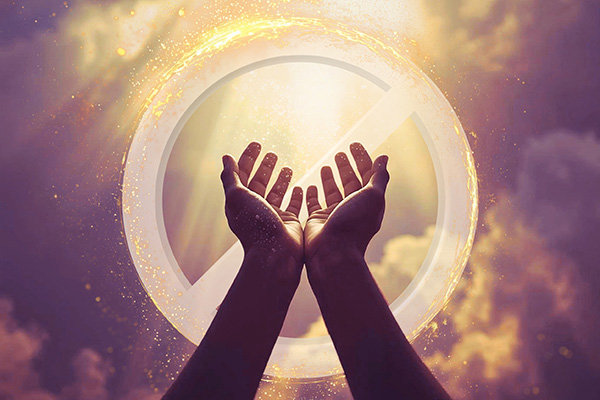self-awareness
Small Gestures Of Kindness In A Time Of Cruelty
 Many people are feeling anxious or uncertain in recent years with everything that has been happening in the world.
Many people are feeling anxious or uncertain in recent years with everything that has been happening in the world.
Some are fearful and others stressed or unsure how to act appropriately in these restless times. Some even act out in destructive or dramatic ways, taking their frustration out on others.
It is common knowledge that the digital age and social media has spawned a generation of computer warriors and online bullies who express their insecurities and fears, in often extremely mean and cruel ways, from the comfort of their living rooms and basements.
This savage lack of empathy and decorum has seemingly now spilt over into our streets and neighborhoods too.
It is easier for many to be critical and judgmental, to complain and argue, instead of facing facts, dealing with the truth and seeking lasting solutions.
Often not knowing the entire story, many people choose to see only see one side of things, while telling others off for disagreeing with their limited point of view. The computer has unfortunately given some people a platform to spread strife and hatred, instead of love, hope and kindness.
I pray that more people will strive to seek the truth and learn to look for the good and kind in others. Showing tolerance, patience and kindness is always the better, more open approach. And always remember that if someone attacks you directly, then it often means they are somehow struggling or hurting. It usually serves no real purpose to attack them back. Continue reading
Are You Erasing Your Blessings?
 The unselfish gifts of our time, money, and resources as well as our labors of love bring us many blessings in this lifetime and the next.
The unselfish gifts of our time, money, and resources as well as our labors of love bring us many blessings in this lifetime and the next.
When we are kind and generous to others, we are also showered with good fortune in return. We know this from the ‘golden rule’ of ‘do unto others’ found in many religions and spiritual traditions.
Buy I have read for many clients over the years who are kindhearted and loving people, but complain about their life being very difficult and deprived. They never have enough money, or they cannot find love, or health and well-being seem to evade them. “I am always helping others, but I get nothing in return,” they might say.
Why is this the case? Why are these generous, caring people not being blessed more often for their good deeds?
Well, my guides have made the spiritual cause of this very clear to me. It is my understanding that we do not only add items of charity and compassion to the list of entries on our ‘chalkboard,’ but we also delete or erase them!
You see, when we do a good deed, it gets added to our list of potential ‘return blessings.’ But, if we go around bragging about it, boasting, showing off, telling people how generous or kind we have been, those good deeds become nullified, neutralized, erased. It loses its metaphysical power and spiritual meaning. It can no longer bless us in return.
True Love Has No Time Limit, And No Deadline!
 We live in a busy world where most of us have gotten used to a very hurried life. Everything is on a strict schedule and time limit, because we now judge everything this way.
We live in a busy world where most of us have gotten used to a very hurried life. Everything is on a strict schedule and time limit, because we now judge everything this way.
We have become a restless society demanding instant solutions and immediate gratification in all things.
If the line is too long at the supermarket or fast food restaurant, some of us get upset. If we have to wait for our doctor when we have an appointment, we become annoyed. Some cut in front of others, or even cross streets while the light is still red, because they hate to wait.
Similarly, if we do not get an immediate reaction from our latest love interest, some of us do not become just a little restless or anxious. No, they get really upset!
If this kind of hurried, rushed way of life plagues you, then you may definitely need an major attitude adjustment. Because your naturally loving heart and your capacity for love and romance may be in serious trouble.
Maybe your heart never got the memo that there was no need to constantly hurry up and adhere to time limits and deadlines.
What happened to dating? Romantic chats? Patiently anticipated expressions of affection? Dozens of love letters, and more recently emails and test messages? The joint holidays and weekends away? The looking forward to new adventures together?
The Empowered Empath’s Guide To Spiritual Self-Care
 Empaths, sensitives and intuitives tend to be givers. Loyal, sometimes to a fault, and fiercely protective of those they care about… moving at lightning speed whenever called upon.
Empaths, sensitives and intuitives tend to be givers. Loyal, sometimes to a fault, and fiercely protective of those they care about… moving at lightning speed whenever called upon.
So, when I say to an empath that it may be time to put themselves first, the response is often mixed.
But, if putting yourself first seems too selfish or too difficult, try something simpler: at least put yourself on an equal footing with those you love and care for.
For many sensitive and highly intuitive people, self-care must be an acquired behavior… and it’s a big one. Empaths intend to be selfless, to help, heal and facilitate those they care about. Wonderful!
But remember, if this is your goal, then begin with yourself. The stronger, healthier and happier you are then the more effective, nurturing and supportive you can be to those around you.
Putting yourself first doesn’t mean that you are doing only what you want to do all the time, and it doesn’t mean that you are suddenly going to ignore those you care about.
What it does mean is making it a priority to take care of your own physical, mental, emotional and spiritual needs. This can be a tall order and quite the task for some empaths. Don’t wait until you are in a meltdown… frustrated and snapping at everything and everyone around you, with little or no provocation.
How To Navigate Change Without Losing Your Mind
 Life has a way of plunging us into change, often without much warning.
Life has a way of plunging us into change, often without much warning.
One day you realise something feels different. A chapter is ending, another is beginning, and you are somewhere in between.
These moments invite us to slow down, take a breath, and check in with ourselves, even if we do not yet know what comes next.
We all move through transitions differently. Some people feel comforted by plans, lists, and clear goals. Having a sense of direction helps them feel grounded.
Others find that kind of pressure exhausting. Being told they should have everything figured out can feel more stressful than supportive, especially when life already feels full.
I have always leaned toward the second group. The expectation to define the future too neatly has often left me feeling stuck rather than inspired. Over time, I have learned that change does not always need big decisions or bold declarations. Sometimes it asks for something much simpler.
For me, that often starts with pausing and noticing what has already happened. Taking a moment to feel grateful for what I have lived through can be surprisingly calming. The hard parts that shaped me, the small joys that kept me going, the people who showed up when I needed them.
Clutter Bust Your Home To Liberate Your Soul
 Choosing what you allow and keep in your life gives you a sense of having control of your happiness and your future.
Choosing what you allow and keep in your life gives you a sense of having control of your happiness and your future.
If you are hoarder, or living a cluttered existence with too many material possessions, know that it is limiting your spiritual growth and personal fulfillment.
The path to enlightenment is not paved with stuff… and more stuff. Maybe it’s time to rid yourself of those things that no longer serve a purpose in your life?
Clutter is rarely just a collection of objects; it is often seen as a physical manifestation of delayed decisions, stagnant energy, or an attachment to the past.
Many spiritual traditions believe that our outer environment is a reflection of our inner state. Buddhism teaches that self and environment are one; in Taoism energy flow affects internal peace; in Hermeticism the small (home) reflects the large (soul); and in Hinduism physical space is a living extension of the self.
In Japanese aesthetics and philosophy, the concept of Ma refers to the pure, essential beauty of empty space. By decluttering, one creates the literal and figurative room for new experiences and thoughts to emerge.
Central tomany wisdom teachings is the idea that suffering stems from attachment. By intentionally removing objects that no longer serve a purpose, we practice the spiritual discipline of “letting go,” acknowledging that our identity is independent of material possessions.
